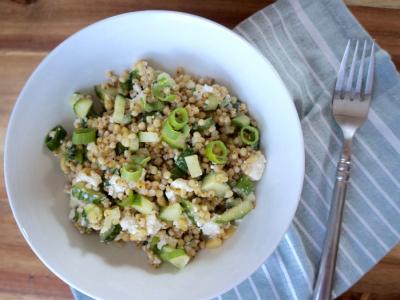MANY ANTIOXIDANTS IN WHOLE GRAINS
While fruits and vegetables are known as sources of healthy antioxidants and phenolic compounds, research increasingly shows that whole grains contain them too. In this review, researchers analyzed the total phenolic contents, phenolic acid profile and antioxidant activity of several whole grains, including wheat, corn, rice, barley, sorghum, rye, oat and millet. The review shows that whole grains contain a number of phytochemicals (including antioxidants) and significantly exhibit antioxidant activity. Researchers conclude that the consumption of whole grains is considered to have significant health benefits including prevention of chronic diseases such as cardiovascular disease, diabetes, and cancer because of the contribution of phenolic compounds.
Critical Reviews in Food Science and Nutrition. 2014 July 30. [epub ahead of print] (Van Hung P et al.)



